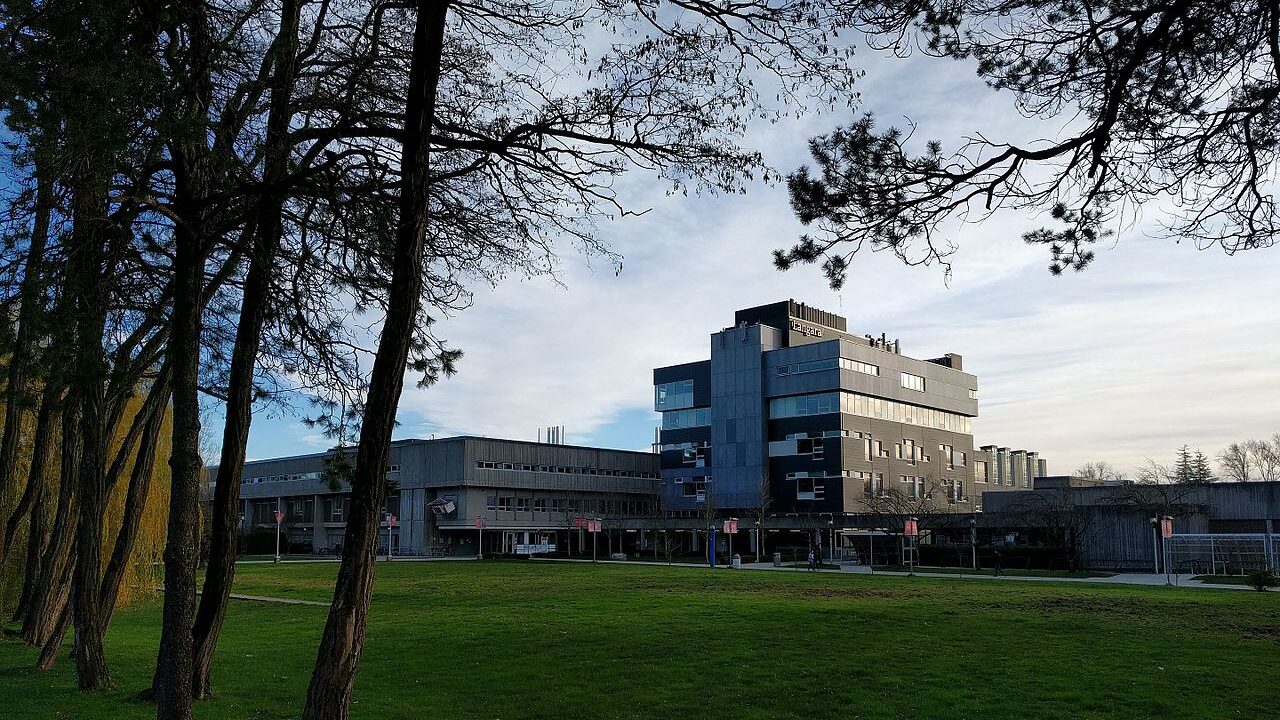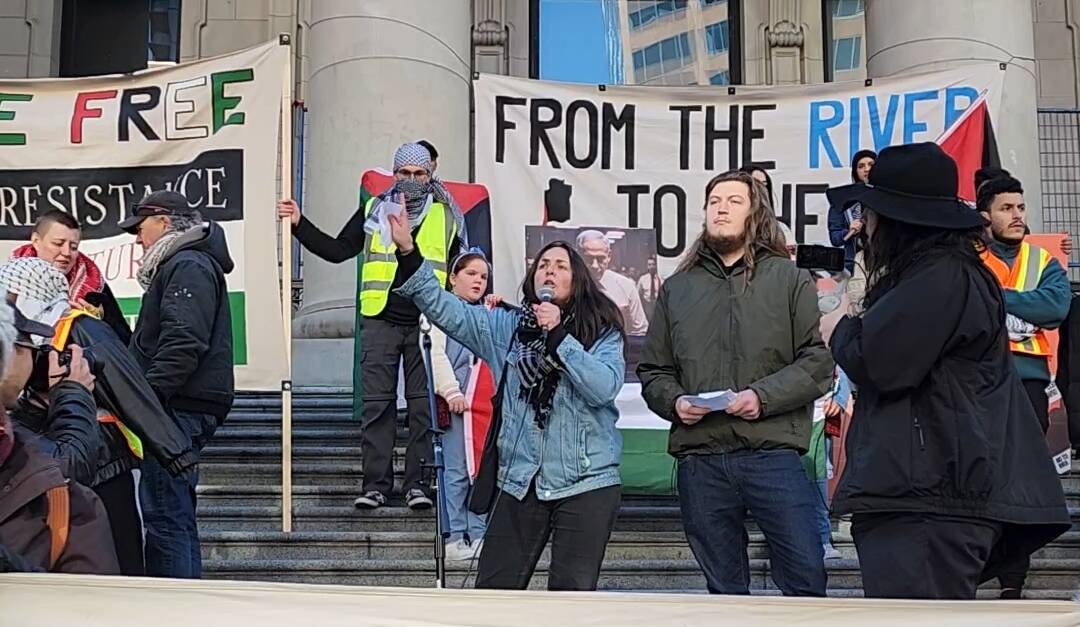Following a demonstration for the liberation of Palestine in downtown Vancouver on October 28, Natalie Knight, a teacher at Langara College and member of the organization United in Struggle, found herself at the center of a political storm. Her speech, which celebrated the resilience of the Palestinian people and supported the offensive launched against Israel on October 7, quickly drew criticism and triggered a series of events that put her career in jeopardy.
The backlash, largely fueled by a Twitter campaign led by National Post contributor Terry Glavin, quickly gained momentum. By October 30, the mainstream media had picked up on the story, leading to Knight’s forced administrative leave from Langara College.
In an interview with North Star, Knight said she was surprised not to have been fired immediately, but suggested that strong pressure from the provincial government meant there was little chance of her being reinstated.
Despite differing opinions on her position, she insisted on the importance of not silencing political expression, stressing the conditional nature of free speech in cases like hers. “People don’t need to agree with what I said,” Natalie Knight asserted without hesitation, “but the attempt to silence it is a serious problem.”
Knight defended her speech, stressing that her intention was not to glorify violence but to highlight the Palestinian struggle against oppression. Rather than viewing the violence of October 7 as isolated events, Knight insisted that it must be understood in context. She said the focus should be on 75 years of domination by Israel, and that her words were an acknowledgement of Palestinian resistance against the colonialism supported by the U.S. and its allies, including Canada.
The intentional conflation between “Anti-Zionism” and “anti-Semitism” in the mainstream media and public administration is commonplace. Zionism, or the belief in the need for a Jewish state in Palestine, is not the only ideology among Jewish communities: the Neturei Karta and Satmar Hasidic religious groups, as well as the organisation Jewish Voices for Peace, are examples of Anti-Zionist jewish groups. Nevertheless, at the end of 2022, the ABC party, in power in the city of Vancouver, had the city council adopt a definition that considered opposition to Zionism to be a form of anti-Semitism.
To deliberately sow confusion between these two distinct terms is, according to Natalie Knight, what has led to the current controversy. Following the events, British Columbia Premier David Eby introduced a mandatory Holocaust education program in high schools tapping into this kind of confusion, adding a layer of ideological tension to the ongoing events.
“The goal is to have peace,” she maintained during the interview with North Star. “No one glorifies violence, I certainly don’t, and the goal is not to be in a state of war. But we don’t want unprincipled peace, and when people criticize Palestinians for fighting back and engaging in war… that essentially says, ‘you have to remain colonized and occupied.'”

At the time of publication, Langara College had not yet made a final decision on Natalie Knight’s employment. Support for her reinstatement, both inside and outside the college, has grown in recent weeks, as numerous letters have been sent to the administration. In addition, a public statement calling for her return has been signed by nearly 40 organizations.
The controversy surrounding Ms. Knight is not an isolated incident. Recent cases in Canada highlight the challenges facing those who support Palestinian resistance. Notably, a recent North Star investigation found that schools in Ontario were preventing some students from sharing photos of events in Gaza because it might “incite hatred against Jews.”
In addition, Calgary activist Wesam Coolie was arrested for leading the chant “From the river to the sea, Palestine will be free” on November 5, and University of Ottawa medical student Yipeng Ge was suspended from his residency on November 20 for posting messages of support for Gaza on social networks.
For Natalie Knight, the broader message conveyed by United in Struggle on October 28 is lost amidst this “manufactured media storm”. Knight and United in Struggle maintain that solidarity with Palestine is crucial, as they see it as part of a general context of struggle for better living conditions and more control over politics and economics for all the world’s peoples.
However, they also consider it insufficient without an attack on the complicity of the Canadian state and elites who profit financially from the misery currently experienced by Palestinians and other populations worldwide.
